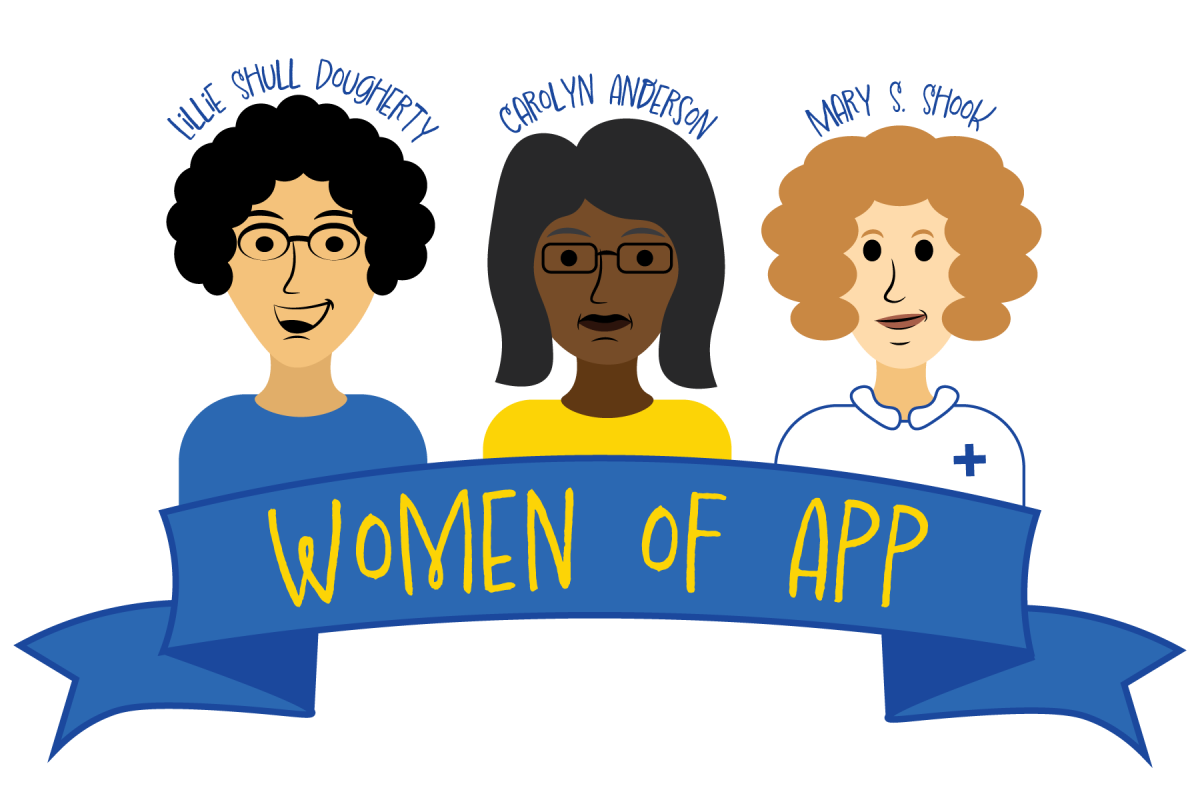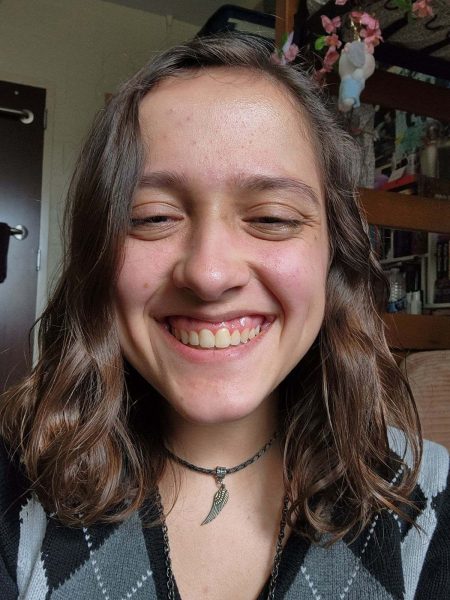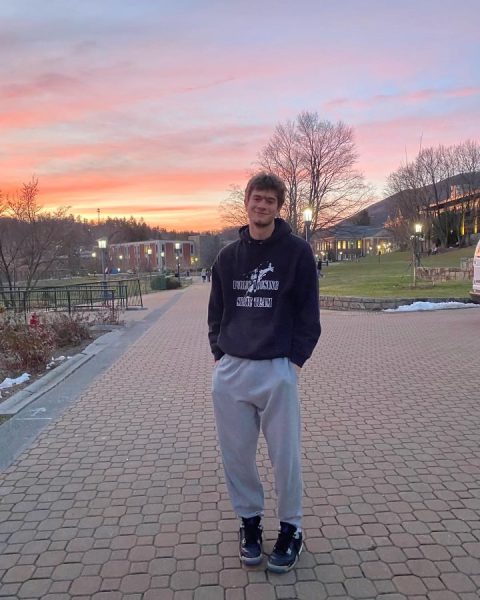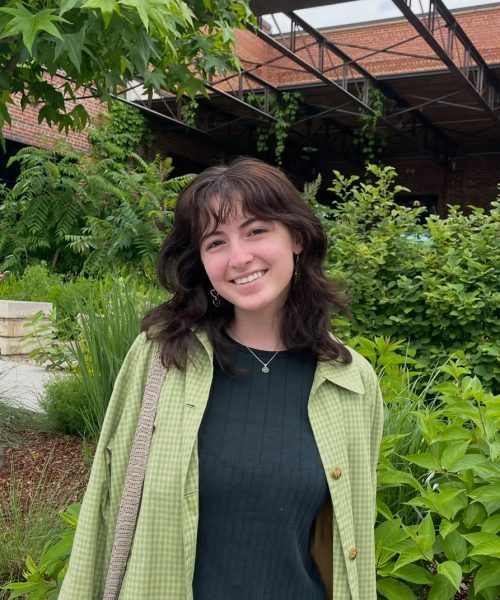App State was founded in 1899, originally named Watauga Academy, by Blanford Barnard Dougherty, his brother Dauphin Disco Dougherty and D.D.’s wife Lillie Shull Dougherty. At this time, it was very rare for a woman to hold such a position of power. Even if they did, they would be given lower pay than their male colleagues, and sometimes no pay at all. Lillie Shull Dougherty played an influential role in the creation of App State, but on campus, that recognition is not properly given. Other women such as Mary S. Shook and Carolyn Anderson also played important roles for the university, but they are not recognized for it as they should be. If Lillie Shull Dougherty and these other women played such a fundamental role in the shaping of the school, then why do they not have the proper attention? The needed recognition is not being given to these women and that needs to change.
Lillie Shull Dougherty taught music classes and was the college’s official hostess. Lillie Shull Dougherty soon found herself joining her husband D.D. Dougherty in leading the school, as B.B. Dougherty was regularly needed to supervise ongoing construction of the school. After her husband’s passing in 1929, she took over as treasurer and business manager of the school. She then retired in 1938 and passed away seven years later. In remembrance of the influence that Lillie Shull Dougherty had on App State, Lillie Shull Dougherty Hall was built in 1962, which housed the Home Economics Department. Currently, it houses the Department of Languages, Literatures and Cultures. On the second Founders Day celebration in 2019, a statue of Lillie Shull Dougherty was donated by William H. Brown Jr., one of her great-grandsons.
Lillie Shull Dougherty did much more than her male counterparts in terms of founding App State. While they supervised construction of the school, she stayed on campus and taught students, making sure everything was running smoothly and efficiently in regards to the educational experience.
In 1949, Mary S. Shook was hired as the first full-time nurse. She began her career as the nursing director of the operating room at Grace Hospital of Lees-McRae College. When she married her husband, Zeb Shook, the couple moved to Boone in search of work at App State. From 1949 to 1952, Mary S. Shook was the only employed healthcare professional on campus. She single-handedly provided for students’ physical needs, counseling services and health education for years. Mary S. Shook was a founding member of the Student Health Association of North Carolina and the Southern College Health Association. She received multiple awards and honors for her work, and after 40 years of working at App State, she retired in 1983: the same year the student health services building was named in her honor.
Anderson was the university’s first African American, full-time faculty member. In 1969 she received her master’s degree from App State in mathematics and taught in the Department of Mathematics. She also worked for Livingstone College, Rowan-Cabarrus Community College and Winston-Salem State University, where she retired as associate director of the Center for Excellence in Teaching and Learning. In 2015, Anderson was awarded The Faces of Courage Award, which recognizes individuals who were important participants of App State’s early diversity efforts.
These women, while having such importance to the school, are not recognized enough for their work. Some have buildings named after them but no other form of acknowledgement. Even the historical marker that dates the founding of App State does not mention Lillie Shull Dougherty’s name, only her male colleagues. There is nothing commemorating Mary S. Shook’s work except for the building named after her and there is nothing showing any significance towards Anderson and her accomplishments. Why are these women not given the necessary recognition and credit they deserve? The answer is simple: sexism and misogyny.
Women make up 47% of university faculty in the U.S. and over half of the upper education administrators. Provosts in the U.S. consist of 44% women, and barely a third of college presidents are women. This can be a result of the glass ceiling; these women are no longer able to go up the ladder of success because they are seen as less than their male counterparts. When it comes to a woman having any leadership role, they are already at a disadvantage because they are held at a higher standard than men in the field. Women in leadership positions carry this responsibility of making other women look good; if they do not, then the idea of “Oh well, a man can do this better” stands in the way of a woman’s success. A woman should not be seen as less than her male colleagues simply because she is a woman. Whether or not someone should be given a position of power should be based on their skill, ability and performance, not their gender identity.
There are countless women in App State and beyond that have not been given the recognition they deserve simply due to the fact that they are a woman. There should be more opportunities to learn about such women, to give their accomplishments a voice as well as inspire the next generation of women who want to make a change in our patriarchal society. Looking towards the future of App State, there should be more events to learn about such influential women, this can be done through tabling with the Women’s Center or informative sessions held by the Gender, Women’s and Sexuality Studies program. This recognition should not be strictly during Women’s History Month, but year round. A woman’s achievements should not be limited to one month of the year; they should be recognized all the time.





sfr • Apr 3, 2024 at 11:29 am
“Margaret (Maggie) McFadden came to Appalachian State University in 1975 as an assistant professor in Interdisciplinary Studies. McFadden earned a B.A. in Humanities/English from the University of Denver in 1963, an A.M. in English Language & Literature from Boston University in 1964, and a Ph.D. in Humanities from Emory University in 1973. She was the Founding Director of the Women’s Studies program and served as director for more than 12 years,
at different times during her tenure at Appalachian. McFadden also served as editor of the National Women’s Studies Association Journal for six years, from 1997-2003. McFadden received a Fulbright Scholarship in 1991-92 at the Institute of Women’s Studies, Åbo Akademi University, Turku, Finland, where she taught and researched in Women’s Studies and in the Department of History. She was made a Docent (Guest Professor) at Åbo Akademi University in 2001 and continued to teach occasional courses there. In 2004 she received a Fulbright Grant to serve as distinguished chair of gender studies at the Institute of Gender Studies at the University of Klagenfurt in Austria, where she taught women’s history and feminist theory courses and conducted research on international women activists between 1918-40. McFadden retired from teaching at Appalachian in June 2009.”
Search library: “Special Collections Research Center, Margaret McFadden papers.”